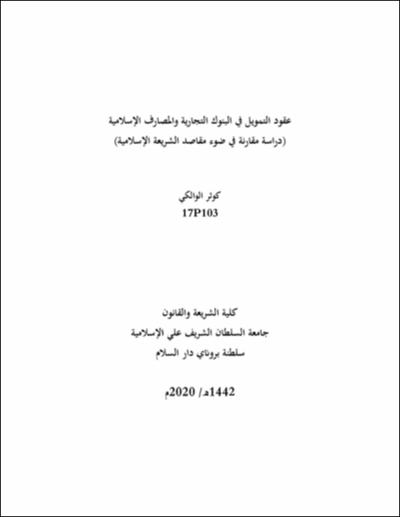عقود التمويل في البنوك التجارية والمصارف الإسلامية دراسة مقارنة في ضوء مقاصد الشريعة الإسلامية
Abstract
Banks in the modern era have an important role in the economic development of countries, but their interest based transactions make many Muslims refrain from dealing with them, and this has led to the emergence of Islamic banks that seek to get rid of usury and make the principle of "profit for loss" a substitute for it. However, those Islamic banks face criticism that their financing does not differ from that of commercial banks, except in formalities and designations. Accordingly, this research seeks to answer the problem of the fact that Islamic banks differentiate in their contracts from commercial bank contracts in light of the objectives of Islamic law. The research relied on a descriptive, analytical and critical approach to present the theoretical and applied frameworks for the most important financing contracts in the two types of banks with analysis, criticism and comparison. The research reached an important result: There is no fundamental difference between the financing contracts in Islamic banks and the usurious loan in the commercial banks. Failures of the used contracts for financing in Islamic banks to achieve the objectives of slavery (‘Ubudiyah) and justice, as they have been keen to rely on contract forms with no consideration to their meanings and purposes, to find justification that guarantees them profit and competition with commercial banks. The research recommends the need for Islamic banks to review their transactions in accordance with Sharia objectives, and to reformulate the sales contract of Bai’ Bithan Ajilin (BBA) in a manner consistent with Sharia objectives and adopt it as the only way to buy real estate, and to prevent the organized banking Tawarruq contract due to its inability to be reformed, and limiting leasing to operating leasing.
Collections
- Ph.D (FSL) [12]
Alternative Title
Financing Contracts in Commercial and Islamic Banks, A Comparative Study in Light of the Objectives of Islamic Law


